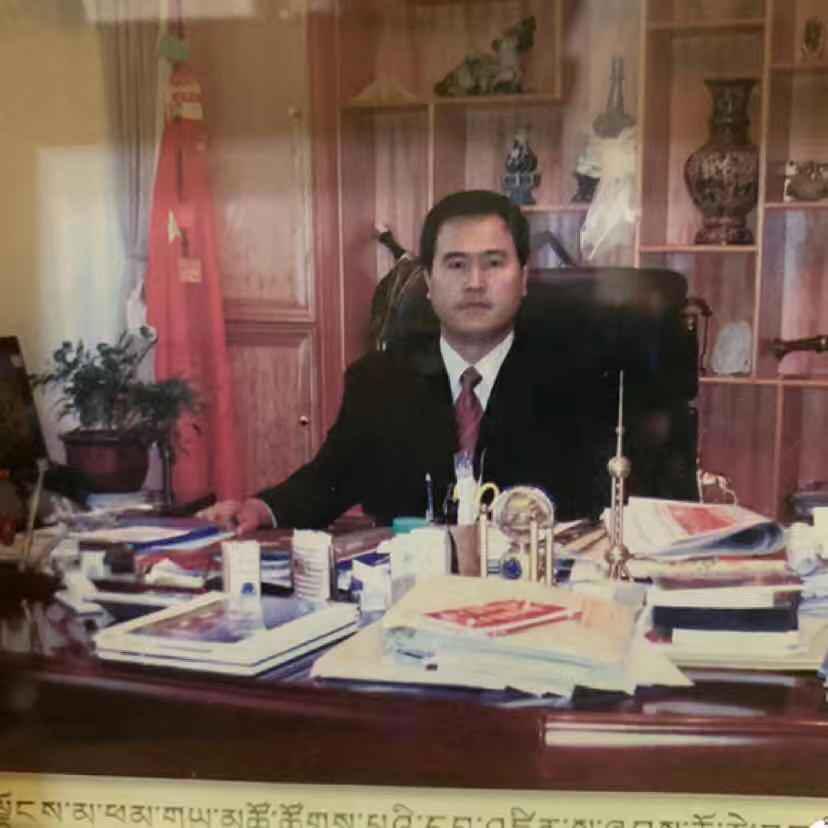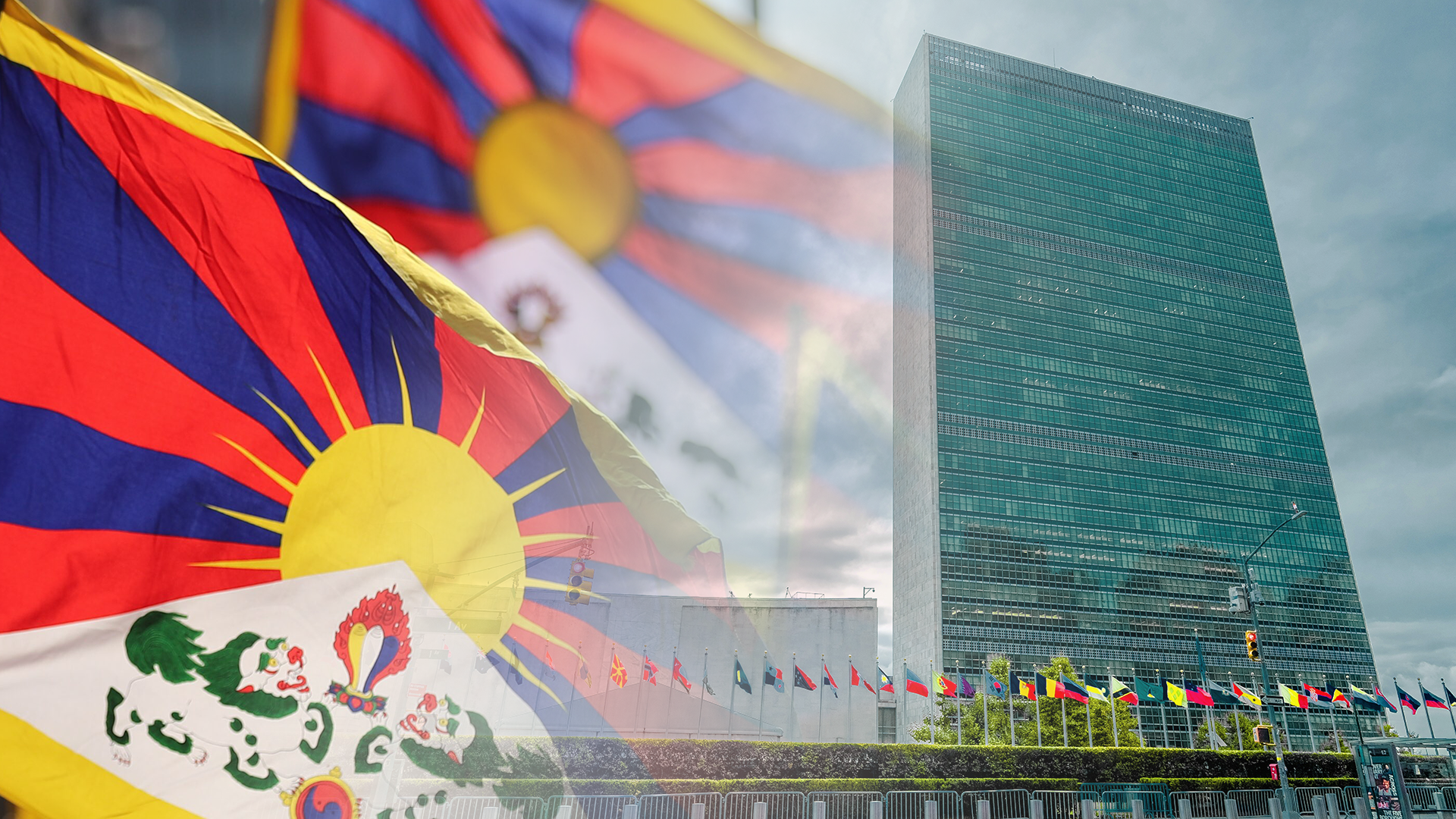
Chinese international student Zhang Yadi, who promoted Tibetan culture and peaceful dialogue, has been arrested in China and may now face criminal charges. Zhang Yadi, 22, had been awarded a scholarship to study for a Masters at the University of London (School of Oriental and African Studies) in September.
Zhang (online name: Tara) Yadi had been living in France as an international student before her return to China to see family for her summer holiday, where she was arrested on 31 July in Shangri-La (Gyalthang) in Yunnan province, China.
Tibet Watch has now learned that Zhang Yadi is being held at a detention centre in her hometown in Changsha, Hunan Province, under suspicion of “inciting others to split the country and undermine national unity.” But through her research and writing, Zhang Yadi was doing exactly the opposite, seeking to reduce ethnic hostility, advance dialogue between Chinese and Tibetans and promote reconciliation.
When meeting Zhang Yadi’s family to advise them last week, Chinese lawyer Jiang Tianyong was detained by three unidentified men, and taken into custody, although he has since been released. Jiang Tianyong has faced torture and imprisonment before, and has courageously defended Tibetan prisoners.[1]
Fluent in Chinese, Tibetan, English, and French, Zhang Yadi was one of the earliest members of Chinese Youth Stand for Tibet (华语青年挺藏会), a digital platform to support Tibet that emerged after the November 2022 White Paper Movement in China, when Chinese citizens held up blank sheets of paper to mock censorship after protests against oppressive COVID controls. She once said, “Supporting Tibetans is not just about speaking out for them, but also about fighting for a path to freedom for ourselves.”[2]
According to friends, Zhang Yadi was deeply affected by the news of the self-immolation of Tibetan pop star Tsewang Norbu in Lhasa in 2022, realising that such incidents were not just distant headlines, but a harsh reality that concerned her deeply.
The imprisonment of Zhang Yadi, who had been studying at the École Supérieure de Commerce de Paris (ESPC Business School) in Paris, highlights the vulnerability of Chinese international students to transnational repression including monitoring of their activities and harassment when they are abroad, and even greater dangers on their return home.
Zhang Yadi’s work for Chinese Youth Stand for Tibet, in Chinese and English, aimed to “bridge cultures and foster a deeper appreciation of this extraordinary region”, according to their website. “ We are a group of native Chinese speakers with a deep love for Tibetan culture and a heartfelt concern for every aspect of the land and life in Tibet. From the golden barley fields and vast pastures to the majestic snow-capped mountains, sacred monasteries, serene sutra halls, and the traditional black tents that dot the Qinghai-Tibet Plateau, we cherish it all. Through this account, we aim to share the beauty and richness of Tibetan culture while exploring Tibet’s past, present, and future.”
Chinese authorities have systematically targeted Han Chinese citizens who have attempted to understand, document, or advocate for Tibetan issues, often using charges of subversion or threatening national security to justify their persecution. The pattern shows that supporting ethnic harmony and Tibetan rights has consistently been treated as a threat to state power, regardless of whether the advocate is Tibetan or Han Chinese.
Legal scholar Xu Zhiyong, who was sentenced to 14 years in prison for civil activism in 2023, faced harsh repercussions after he wrote about his attempts to visit the family of a Tibetan self-immolator in an article, ‘Tibet is Burning’. The late Nobel Peace Prize laureate Liu Xiaobo, who died in prison in 2017, had called for China to end violent suppression in Tibet in 2008, and was among a group of Chinese intellectuals calling for dialogue between Chinese leaders and the Dalai Lama, so as to “eliminate animosity and bring about national reconciliation”.[3]
Tenzin Rabga Tashi of Free Tibet said: “Zhang Yadi devoted herself to Tibet, building bridges and fostering understanding for Chinese to the Tibetan plight – the very opposite of the baseless charges leveled against her. She should be pursuing her studies in London. We call upon the British and French Government to pressure China for her immediate release.”
[1] In 2017, he was disbarred and tried on charges of “inciting subversion of state power” following torture in custody. Before his trial he asked friends for forgiveness if he said things that were “less than heroic” because of the excruciating pain of torture. X post, 2 March 2017: https://x.com/wlh8964/status/837295383181049856
[2] ‘“I Am a Brave Person”—Zhang Yadi: From Political Depression to the Path of Freedom and Truth’, Human Rights in China, 23 September 2025, https://hrichina.substack.com/p/i-am-a-brave-personzhang-yadi-from
[3] In an article written before his imprisonment, Liu Xiaobo wrote: “In order to really achieve ‘great Chinese-Tibetan unity’, the Han Chinese need to learn to respect beliefs. And the best way to show this respect is to let the spirit of the Snowland, the Dalai Lama, return home.” Article by Tsering Woeser, translated into English by High Peaks Pure Earth, 28 October 2010, https://highpeakspureearth.com/liu-xiaobo-han-chinese-have-no-freedom-tibetans-have-no-autonomy-by-woeser/






